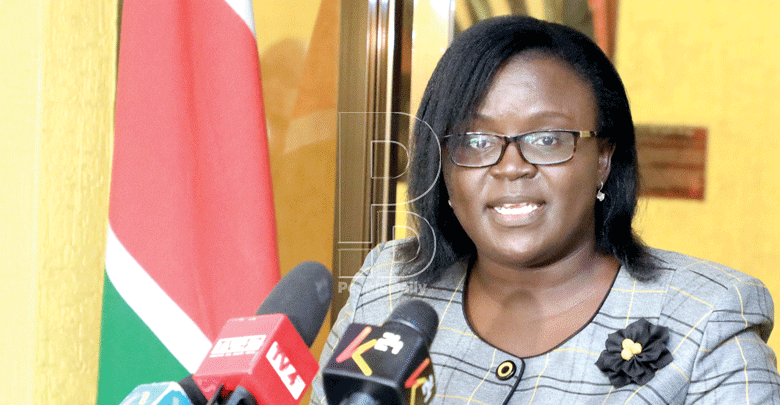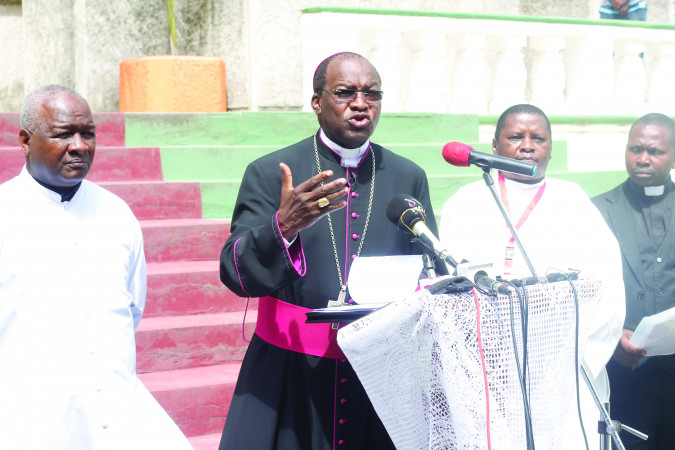Why rebels are daring hornet’s nest in parties

Political parties seem helpless in cracking the whip on rebel members.
President Uhuru Kenyatta’s Jubilee Party, opposition leader Raila Odinga’s ODM, Musalia Mudavadi’s Amani National Congress (ANC) and Ford Kenya all find it difficult to expel members who are openly backing other political formations.
Although Jubilee recently succeeded in removing Nominated Senator Isaac Mwaura, who has since gone to court to challenge his removal, other political parties are stuck in the process.
Sources from one of the parties facing hurdles in dealing with errant members blamed the Political Parties Dispute Tribunal (PPDT) for dwelling on technicalities of cases brought before it instead of looking at the substance of the complaints.
The Political Parties Act section 14 (5) states that “a person who, while being a member of a political party, joins in the formation of another political party, joins another political party in any way or manner, publicly advocates for the formation of another political party or promotes the ideology, interests or policies of another political party shall be deemed to have resigned from the previous political party”.
“PPDT is the problem because they only look at fair administrative action taken by a political party and not the substance of the cases brought before it.
We need to have a serious conversation between PPDT, Registrar of Political Parties and the political parties. Otherwise the law is not serving its purposes,” said the source.
Registrar of Political Parties Anne Nderitu urged parties to adhere to their constitutions and internal mechanisms in kicking out truant members, adding that if a party misses a step it’s likely to suffer a setback if the complainant moves to the tribunal.
She, however, challenged lawmakers and other stakeholders to have a conversation around capping the timelines and clustering the cases.
“Timelines and clustering of cases is what is lacking under the PPA. In the election petitions, timeline is within six months and presidential election petition is directly handled by the Supreme Court. This is lacking in PPA,” said Nderitu.
She argued that if this is not addressed, parties will always be held to ransom by individual members since the appeal mechanism is unlimited.
Jumwa case
For instance, ODM used its internal resolution mechanisms to expel Malindi MP Aisha Juma and even accorded her a hearing with the party’s National Executive Committee but Jumwa challenged the decision at the PPDT which found that the party only constituted the disciplinary committee with the then chair Fred Athuok listening to her.
PPDT said the party failed to properly constitute a disciplinary committee which should comprise of five members.
“The Disciplinary Committee of the respondent convened on 19th October, 2018, was not properly constituted to hear and determine the disciplinary case against the complainant and thus the report arising therefrom against the complainant is invalid and has no legal effect in law,” PPDT ruled.
“Jumwa appeared before the disciplinary committee twice and before NEC. There is only one instance where she appeared before one member of the committee. PPDT failed to take into account that Jumwa was accorded fair hearing,” said the source.
Jubilee Party suffered a setback after the PPDT ruled that it did not accord five senators earmarked for expulsion a fair hearing within the party’s internal structures.
Nominated Senators Millicent Omanga, Victor Prengei, Mary Seneta, Naomi Waqo and Falhada Dekow survived the axe, thanks to PPDT.
Jubilee Party Secretary General Raphael Tuju said the country has transitional challenges, adding that as a party they have adhered to what the law stipulates yet complainants go to the High Court which has the jurisdiction to hear any case from the lower courts including quashing the decision.
Tuju said there is lack of integrity among politicians who spite the party on whose ticket they were elected or nominated, draw a salary but see nothing wrong with their actions.
“One is elected or nominated by a political party and the next day they show the middle finger to the same party but does not have the honour to resign,” said Tuju.
ANC had also moved to sack its rebel Nominated MP Godfrey Osotsi over misconduct but was reinstated by PPTD.
The tribunal ruled that the decision by the Registrar to remove Osotsi from the party register was in breach of the MP’s fair administrative action and right to be heard.
Justice Mbogholi Msagha, in dismissing the appeal by ANC, stated that the party fell short of the required standards in the disciplinary process and compliance with the law in addressing its differences with Osotsi.
Deputy President William Ruto, the Jubilee Party deputy leader, is linked to the United Democratic Alliance while Gatundu South MP Moses Kuria is associated with Peoples Empowerment Party (PEP).
Last week, PEP’s George Koimburi defeated Jubilee’s Susan Waititu in the Juja parliamentary by-election.
While celebrating Koimburi’s win, Kuria unveiled the PEP candidate for the Kiambaa July by-election Raymond Kuria.
Ruto’s allies, most of them Jubilee legislators, have been openly campaigning for UDA candidates in recent by-elections.
When asked about party indiscipline, South Mugirango MP Silvanus Osoro, a DP ally, argued that PPDT and the courts were simply interpreting the law.
Original jurisdiction
“Political parties as currently constituted are personal property. The law provides for procedures of expulsion of members. Human worship is not part of one’s responsibility once they join a party,” said Osoro.
Section 15 (7) of the Political Parties Act states that a member of a political party may only be expelled if the member has infringed the constitution of the party and after the member has been afforded a fair opportunity to be heard in accordance with the internal party disputes resolution mechanisms.
Homa Bay MP Peter Kaluma argues that the biggest impediment for parties disciplining members is the High Court, adding that matters between political parties and their members should be addressed internally or end at the PPDT.
“Instead of only hearing challenges against the decision of PPDT, the High Court has been exercising original jurisdiction and issuing orders stopping parties from acting against their members,” said Kaluma.
However, Makueni Senator Mutula Kilonzo Junior faulted parties for failing to have robust internal mechanisms to conduct fair disciplinary processes.
“All their proceedings appear contrived, rushed and premeditated. The result is that the cases are badly done and the structures of the party disorganised.
The parties are to blame for shoddy proceedings and no rules,” said Kilonzo Jr.








